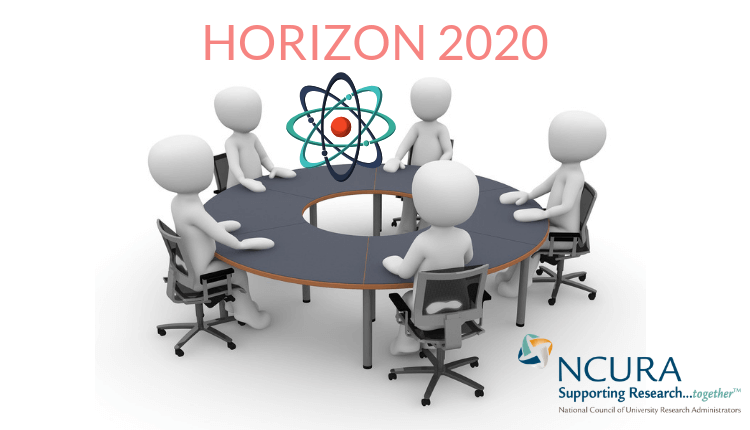Workshops on Horizon 2020 by National Council of University Research Administrators (NCURA)

With the effect of Brexit and the resulting turbulence in the research community, research funding has become a pain point for researchers globally. However, there lies a silver lining for European researchers with the Horizon 2020 program.
Horizon 2020: Brief Background
The Horizon 2020 is a research and innovation program launched by the European Union (EU). It has been funding about €80 billion ($90 billion) between 2014 and 2020 to support groundbreaking discoveries and scientific breakthroughs. According to the European researchers, this investment has promoted innovations within the European Union (EU) and will continue to do so in future. In addition, although EU membership supports international collaboration both directly and indirectly, much international collaboration proceeds outside the EU, and EU membership does not necessarily play a role in all collaborations between EU countries.
NCURA Workshops on Horizon 2020
To solve this dilemma, National Council of University Research Administrators (NCURA), one of the leading professional associations for university research administrators, has organized a series of free workshops on Horizon 2020 specifically for US researchers. These workshops will provide insights and discuss the many opportunities available for US scholars and researchers to participate in Horizon 2020. This special workshop series is brought to you by BILAT USA 4.0, which aims to strengthen research collaboration between the US and EU.
In addition to hands-on training in finding, participating in, and applying for funding opportunities for US institutions, these workshops will provide an overview Horizon 2020 agreements and complexities, and additional resources for US–EU research collaboration. The workshops will feature faculty members (research administrators) who have successfully applied for and received Horizon 2020 awards.
Who are the Participants?
- University research administrators
- Researchers
- Faculty
Discussion Topics:
These workshops will answer all of your questions on Horizon 2020 and provide a chance to quiz research administrators with first-hand experience in dealing with European Commission grants.
Other workshop objectives:
- How can we increase research collaboration with Europe in my university? And how can a U.S. University participate in Horizon 2020?
- What type of projects, organizations, and countries are usually supported by Horizon 2020? What partnerships are required or encouraged?
- How do I manage a Horizon 2020 project?
Workshop Registration:
- Atlanta Workshop: September 25, register here.
- Chicago Workshop: September 27, register here.
- Tempe Workshop: October 1, register here.
Workshop Fee:
It’s free!
Click on “Request an Account once on the registration page. Please register soon! Space is limited.
References:
- Would International Collaboration be Affected if the UK Left the EU? : https://royalsociety.org/topics-policy/projects/uk-research-and-european-union/role-of-eu-researcher-collaboration-and-mobility/would-international-collaboration-be-affected-if-the-UK-left-the-EU/
- European Research Council Funds €653 Million for Groundbreaking Research:https://www.enago.com/academy/european-research-council-funds-e653-million-groundbreaking-research/
- Brexit Negatively Impacting Research Collaborations: https://www.enago.com/academy/brexit-impacts-research-collaborations/







